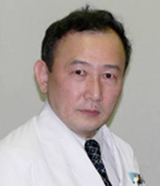
Chair, IgG4-2020
The 4th International Symposium on IgG4-Related Diseases
The 13th Annual Meeting of Japanese Association of IgG4-Related Diseases
Professor, University of Occupational and Environmental Health, Japan
From Sunday, November 15 to Tuesday, November 17 of 2020, the 4th International Symposium on IgG4-Related Diseases and the 13th Annual Meeting of Japanese Association of IgG4-Related Diseases will be jointly held at the Kitakyushu International Conference Center (Kitakyushu, Japan). The conference theme of the joint meeting will be “Diagnosis and new therapeutic development.” Yoshiya Tanaka will chair the meeting, co-chaired by Prof. John H Stone and Prof. Kazuichi Okazaki. We have established a Program Committee composed of international and domestic members, and determined the outline of the joint meeting and the plan for the use of the venue: we expect to hold 6 main symposia, 9 educational lectures, and 3 business meetings. We anticipate 100 to 150 poster presentation registrations and about 500 researchers in attendance from United States, European countries, and Asian countries, including China. The official language will be English. Efforts to hold the meeting in Kitakyushu were supported by the Japan National Tourism Organization. We also closely collaborated with the relevant research divisions of the Ministry of Health, Labour and Welfare (MHLW), Japan, and the Japan Agency for Medical Research and Development (AMED).
IgG4-related diseases are characterized by elevated serum IgG4 concentrations and IgG4 plasma-cell infiltration in organs and tissues throughout the body. The concept originated in Japan in the 21th century. In the 1st International Symposium on IgG4-Related Diseases, which was held in Boston in 2011, the name and definition of these conditions were first recognized internationally, and at this point, in 2019, the diseases have attracted significant international attention The 2nd and 3rd International Symposia on IgG4-Related Diseases were held in Hawaii in 2014 and 2017 respectively, and elucidated the pathology and medical conditions of the diseases, established diagnostic standards for each organ, and formulated integrated diagnostic guidelines. The 4th International Symposium on IgG4-Related Diseases pathology, which will be held at Kitakyushu in 2020, will further elucidate the pathology and revise the diagnostic criteria, as well as aim to establish treatment guidelines that can be followed worldwide. The Symposium now plays an important role internationally.
The number of patients with IgG4-related diseases (designated as #300 in the list of Intractable Diseases in Japan) is estimated to be about 8000 to 15000 in Japan. The mean age of onset is about 60 years. Histopathologically, the diseases are characterized by infiltration and fibrosis of lymphocytes and IgG4-positive plasma cells. Clinically, elevated serum IgG4 concentrations are observed, along with swelling, nodules, and/or thick lesions in organs throughout the body, such as the lacrimal glands, salivary glands, hypophysis, thyroid, pancreas, bile duct, intestinal tract, lung, kidney, retroperitoneum, and vascular system. The origin of the diseases is unknown. However, since clinicians are how familiar with them, lesions that were previously surgically removed are now treated with adrenocortical steroids. However, the presence of refractory cases due to steroid resistance, disease recurrence due to frequent dose reductions or discontinuation of steroids, and a high incidence of side effects have been identified. It is thus an urgent challenge to establish evidence for treatment and to develop new treatment techniques that supplement adrenocortical steroids. In this context, the 4th International Symposium on IgG4-Related Diseases, with the theme “Diagnosis and new therapeutic development,” will provide opportunities for presenting research outcomes (elucidating pathology and developing treatment methods) and exchanging ideas. In particular, the causes of IgG4-related diseases and techniques for addressing treatment-resistant or recurrent cases have not been established. Solving these issues will increase treatment quality and patients’ quality of life.
To date, Japan has continuously led the global progress related to IgG4-related diseases with intensive collaboration and cooperation with many countries such as United States, including discovering the conditions, establishing their diagnosis, and developing diagnostic criteria. Since 2009, researchers and clinicians across Japan have passionately addressed these issues with the support of the Japanese government under the Practical Research Project for Rare / Intractable Diseases of MHLW. In this light, it is significant that for the first time we are holding the International Symposium on IgG4-Related Diseases here in Japan.
We hope to have many participants at the 4th International Symposium on IgG4-Related Diseases, and that the event will be help solve existing issues improve public health.






